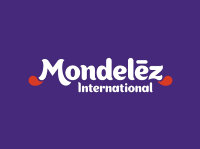
General Mills Inc
NYSE:GIS


| US |

|
Johnson & Johnson
NYSE:JNJ
|
Pharmaceuticals
|
| US |

|
Berkshire Hathaway Inc
NYSE:BRK.A
|
Financial Services
|
| US |

|
Bank of America Corp
NYSE:BAC
|
Banking
|
| US |

|
Mastercard Inc
NYSE:MA
|
Technology
|
| US |

|
UnitedHealth Group Inc
NYSE:UNH
|
Health Care
|
| US |

|
Exxon Mobil Corp
NYSE:XOM
|
Energy
|
| US |

|
Pfizer Inc
NYSE:PFE
|
Pharmaceuticals
|
| US |

|
Palantir Technologies Inc
NYSE:PLTR
|
Technology
|
| US |

|
Nike Inc
NYSE:NKE
|
Textiles, Apparel & Luxury Goods
|
| US |

|
Visa Inc
NYSE:V
|
Technology
|
| CN |

|
Alibaba Group Holding Ltd
NYSE:BABA
|
Retail
|
| US |

|
JPMorgan Chase & Co
NYSE:JPM
|
Banking
|
| US |

|
Coca-Cola Co
NYSE:KO
|
Beverages
|
| US |

|
Walmart Inc
NYSE:WMT
|
Retail
|
| US |

|
Verizon Communications Inc
NYSE:VZ
|
Telecommunication
|
| US |

|
Chevron Corp
NYSE:CVX
|
Energy
|
Utilize notes to systematically review your investment decisions. By reflecting on past outcomes, you can discern effective strategies and identify those that underperformed. This continuous feedback loop enables you to adapt and refine your approach, optimizing for future success.
Each note serves as a learning point, offering insights into your decision-making processes. Over time, you'll accumulate a personalized database of knowledge, enhancing your ability to make informed decisions quickly and effectively.
With a comprehensive record of your investment history at your fingertips, you can compare current opportunities against past experiences. This not only bolsters your confidence but also ensures that each decision is grounded in a well-documented rationale.
Do you really want to delete this note?
This action cannot be undone.

| 52 Week Range |
45.64
65.3
|
| Price Target |
|
We'll email you a reminder when the closing price reaches USD.
Choose the stock you wish to monitor with a price alert.

|
Johnson & Johnson
NYSE:JNJ
|
US |

|
Berkshire Hathaway Inc
NYSE:BRK.A
|
US |

|
Bank of America Corp
NYSE:BAC
|
US |

|
Mastercard Inc
NYSE:MA
|
US |

|
UnitedHealth Group Inc
NYSE:UNH
|
US |

|
Exxon Mobil Corp
NYSE:XOM
|
US |

|
Pfizer Inc
NYSE:PFE
|
US |

|
Palantir Technologies Inc
NYSE:PLTR
|
US |

|
Nike Inc
NYSE:NKE
|
US |

|
Visa Inc
NYSE:V
|
US |

|
Alibaba Group Holding Ltd
NYSE:BABA
|
CN |

|
JPMorgan Chase & Co
NYSE:JPM
|
US |

|
Coca-Cola Co
NYSE:KO
|
US |

|
Walmart Inc
NYSE:WMT
|
US |

|
Verizon Communications Inc
NYSE:VZ
|
US |

|
Chevron Corp
NYSE:CVX
|
US |
This alert will be permanently deleted.
Intrinsic Value
The intrinsic value of one
 GIS
stock under the Base Case scenario is
60.96
USD.
Compared to the current market price of 47.86 USD,
General Mills Inc
is
Undervalued by 21%.
GIS
stock under the Base Case scenario is
60.96
USD.
Compared to the current market price of 47.86 USD,
General Mills Inc
is
Undervalued by 21%.
The Intrinsic Value is calculated as the average of DCF and Relative values:

Let our AI compare Alpha Spread’s intrinsic value with external valuations from Simply Wall St, GuruFocus, ValueInvesting.io, Seeking Alpha, and others.
Let our AI break down the key assumptions behind the intrinsic value calculation for General Mills Inc.
| JP |
G
|
Goyo Foods Industry Co Ltd
TSE:2230
|
|
| CH |

|
Nestle SA
SIX:NESN
|
|
| US |

|
Mondelez International Inc
NASDAQ:MDLZ
|
|
| FR |

|
Danone SA
PAR:BN
|
|
| ZA |
T
|
Tiger Brands Ltd
JSE:TBS
|
|
| US |

|
Hershey Co
NYSE:HSY
|
|
| CN |

|
Muyuan Foods Co Ltd
SZSE:002714
|
|
| ZA |
A
|
Avi Ltd
JSE:AVI
|
|
| CH |

|
Chocoladefabriken Lindt & Spruengli AG
SIX:LISN
|
|
| CN |

|
Foshan Haitian Flavouring and Food Co Ltd
SSE:603288
|
Fundamental Analysis
Select up to 3 indicators:
Select up to 3 indicators:

General Mills’ reliance on staples like breakfast cereals and frozen meals leaves it vulnerable to shifting consumer tastes, especially as demand grows for fresher products and less-processed alternatives that competitors can more nimbly offer.
Rising commodity and freight costs could significantly squeeze margins, given General Mills’ substantial exposure to agriculture-based inputs like grains, dairy, and proteins, undermining profitability if the company fails to pass these costs along to consumers.
Heavy investments in established brands, such as Cheerios and Yoplait, may yield lower incremental returns if consumers gravitate toward niche or smaller brands, forcing General Mills to shift resources away from legacy product lines with uncertain success.
The breadth of General Mills’ product portfolio, spanning cereals, pet food, and snack bars, provides a solid resilience against category-specific downturns, bolstered by decades of successful brand-building.
Its strong position in the pet food sector, particularly through the Blue Buffalo brand, opens new growth avenues and higher-margin opportunities, mitigating any slowdown in the core human food categories.
Consistent cash flows and disciplined cost management bolster General Mills’ ability to invest in innovation and marketing, preserving brand equity while exploring health-focused product extensions to capture evolving consumer demands.
Revenue & Expenses Breakdown
General Mills Inc

Balance Sheet Decomposition
General Mills Inc

| Current Assets | 5.2B |
| Cash & Short-Term Investments | 952.9m |
| Receivables | 1.8B |
| Other Current Assets | 2.5B |
| Non-Current Assets | 27.8B |
| PP&E | 3.6B |
| Intangibles | 22.7B |
| Other Non-Current Assets | 1.4B |
| Current Liabilities | 8B |
| Accounts Payable | 3.7B |
| Short-Term Debt | 22.1m |
| Other Current Liabilities | 4.2B |
| Non-Current Liabilities | 15.5B |
| Long-Term Debt | 12.2B |
| Other Non-Current Liabilities | 3.3B |
Free Cash Flow Analysis
General Mills Inc

| USD | |
| Free Cash Flow | USD |
Earnings Waterfall
General Mills Inc

|
Revenue
|
19.2B
USD
|
|
Cost of Revenue
|
-12.6B
USD
|
|
Gross Profit
|
6.6B
USD
|
|
Operating Expenses
|
-3.4B
USD
|
|
Operating Income
|
3.2B
USD
|
|
Other Expenses
|
-307.2m
USD
|
|
Net Income
|
2.9B
USD
|
GIS Profitability Score
Profitability Due Diligence

General Mills Inc's profitability score is 56/100. The higher the profitability score, the more profitable the company is.

Score
General Mills Inc's profitability score is 56/100. The higher the profitability score, the more profitable the company is.
GIS Solvency Score
Solvency Due Diligence

General Mills Inc's solvency score is 36/100. The higher the solvency score, the more solvent the company is.

Score
General Mills Inc's solvency score is 36/100. The higher the solvency score, the more solvent the company is.
Wall St
Price Targets
GIS Price Targets Summary
General Mills Inc

According to Wall Street analysts, the average 1-year price target for
 GIS
is 55.47 USD
with a low forecast of 47.47 USD and a high forecast of 66.15 USD.
GIS
is 55.47 USD
with a low forecast of 47.47 USD and a high forecast of 66.15 USD.
Dividends
Current shareholder yield for  GIS is
.
GIS is
.
Shareholder yield represents the total return a company provides to its shareholders, calculated as the sum of dividend yield, buyback yield, and debt paydown yield. What is shareholder yield?
The intrinsic value of one
 GIS
stock under the Base Case scenario is
60.96
USD.
GIS
stock under the Base Case scenario is
60.96
USD.
Compared to the current market price of 47.86 USD,
 General Mills Inc
is
Undervalued by 21%.
General Mills Inc
is
Undervalued by 21%.








































